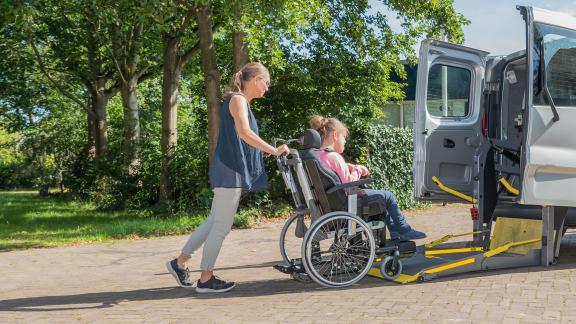T Level students increase capacity for health checks

Overview
The Atherstone Surgery was approached by Leicester College to host an industry placement for a health T Level student. The surgery has an established learning culture and regularly hosts placements for doctors, nurses and pharmacists but hosting a 16-year-old T Level student was new to them.
Key benefits and outcomes
- T Level students contribute to a culture of growth and development with staff finding the mentoring experience rewarding and motivating
- The students’ contributions significantly boosted the number of completed health checks, directly supporting the surgery’s operational capacity.
- The students gained confidence, particularly in patient communication and health assessments, by applying college learned knowledge in real clinical settings.
What the organisation faced
There is a widely held belief that young people cannot do placements in general practice because of confidentiality issues but The Atherstone Surgery had already employed under 18s, so knew this was not correct.
Potential issues were addressed by ensuring the student was not registered at the same practice and only had access to information needed for their placement when a mentor or supervisor was present. During the induction process, the student was thoroughly briefed on confidentiality policies and the importance of maintaining patient privacy. This included what information is confidential and how to handle it appropriately.
What the organisation did
The surgery received a reference for the student from the college and held an informal interview before agreeing to the placement. The surgery and college worked together to provide placement information for the student, such as who to contact, confidentiality, dress code, absence policy, what the student could expect from the placement and how they could prepare for it. The surgery also developed a robust induction programme for the student based on the inductions previously used for placements for under-18s.
The surgery’s existing employers’ liability insurance policy covered T Level students; it had age-specific risk assessments and potential risks were discussed during the induction.
Like all learners at the surgery, the T Level student had a mentor for regular check-ins, and they provided guidance and made sure the student felt safe and supported. Initially, the student shadowed healthcare assistants to gain an insight into their administrative and clinical responsibilities. The students learned to record a person’s vital signs as well as how to take various physiological measurements, including pulse rate, blood pressure, weight and electrocardiograms (ECGs).
Results and benefits
The placement was beneficial for both the practice and the T Level student.
Applying the knowledge and skills they had learned in college boosted the student’s confidence. They were trusted to perform and document patient health assessments independently, following a template. The student’s hands-on practice was valuable to the surgery, significantly boosting the number of health checks completed.
One of the students used the skills they had learned on the placement to gain a place to study paramedic science at university.
“Our T Level placement really helped the student develop skills, but also strengthened the practice’s culture of learning, growth and development by investing in young talent in our practice.”
Karen Clarke, Practice Manager
As the placement progressed and the student grew more confident in communicating with patients, they identified issues during health checks and appropriately reported their concerns. Their insights and recognition of potential service issues contributed to service improvement.
Staff at the surgery found mentoring their first T Level student rewarding, and it has motivated them to support more students. They enjoyed providing meaningful experiences and found it satisfying to see the student learn, gain confidence and become comfortable working as part of the team, assisting the healthcare assistants. They also appreciated the fresh perspectives and energy the T Level student brought to the team.
For more information, contact Karen Clarke, Practice Manager.



